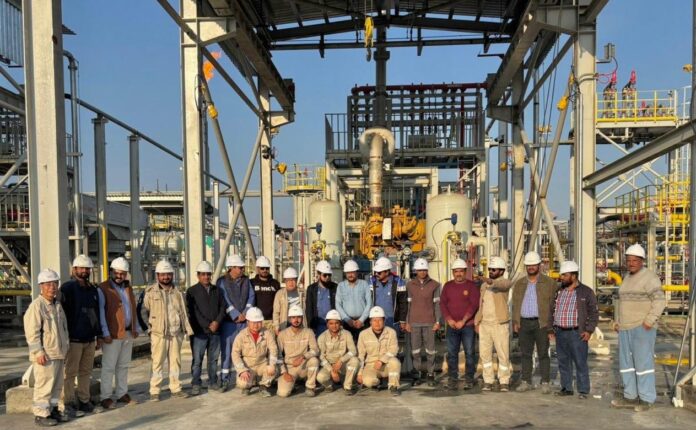ISLAMABAD: President Institute of Regional Studies (IRS) Ambassador Jauhar Saleem said on Friday that Pakistan needed to take a leaf out of China’s book in launching climate resilient projects and adopting best practices according to its ground realities to ensure speedy and sustained development.
Addressing a seminar “CPEC: Driving Sustainable Growth Through Green Development” organized by CGTN Urdu at National Skills University (NSU), Islamabad, Ambassador Jauhar Saleem, who attended the event as chief guest, said Pakistan should focus on grass roots investment in education, health, infrastructure and other sectors for sustainable development.
He particularly emphasized the need for skills development and advised the country’s youth to gain different skills which will help them build their future. He said China has contributed so much to development of Pakistan and made investment through China Pakistan Economic Corridor (CPEC) at a time when it was needed the most by our country. He said the $62 billion CPEC is a continuous project, and it will enhance further in the near future, which is a bright prospect for Pakistan.
Prime Minister’s Coordinator on Climate Change & Environmental Coordination Romina Khurshid Alam, who joined the seminar on video link, said that environment-friendly buildings are being constructed in every province of China, green energy and plantations are being promoted, and food security is being ensured, which serves as a bright example of development for Pakistan and the entire region.
She said CPEC is benefiting both Pakistan and China as well as the entire region through its concept of inclusive development. He said that CPEC is a huge economic project which is proving to be a game changer. He said the friendship between China and Pakistan is very important for the people of both countries.
Rumina Khurshid Alam said that China has taken concrete steps to implement the Global Development Initiatives (GDI) and has achieved considerable success in tackling climate challenges and reducing poverty. She said that Pakistan and China have established GDI Parliamentary Group which will help in achieving common goals.
The prime minister’s coordinator said that new avenues of development are opening up between Pakistan and China through cooperation and enhanced contacts on governmental, public, educational and other levels.
Shakeel Ahmed Ramay, Chief Executive Officer (CEO) of Asian Institute of Eco-Civilization, Research and Development, said Pakistan should adopt indigenous development policies based on its domestic needs to achieve sustainable development.
“Green development through indigenous resources must be our top priority,” he explained.
Dr. Khalid Waleed, Senior Research Fellow from Sustainable Development Policy Institute (SDPI), said Pakistan has great potential in infrastructure development and it can certainly take help from Chinese model.
“Pakistan needs climate smart investment to create balance between development while ensuring environmental protection,” he added.
Dr. Khalid said Pakistan can save up to $6 billion annually by curbing the imports of petroleum products and adopting electric vehicles (EVs).
Prof. Dr. Muhammad Mukhtar, Vice Chancellor of National Skills University, said the university is playing a pivotal role in providing basic skills to students across Pakistan which is acknowledged by UNESCO.
Asim Khan Niazi, Project Director at the Ministry of Planning, Development and Special Initiatives, said CPEC consists of four pillars which are energy, infrastructure, Gwadar, and industrial cooperation.
He said Minister for Planning, Development and Special Initiatives Prof. Ahsan Iqbal is in China and Prime Minister Shehbaz Sharif is also expected to conduct a visit to China, and major developments are expected during that visit.
At the end of the seminary, Du Jianing, Country Head, China Media Group, thanked all the guests and participating students, and said increasing cooperation between Pakistan and China under Green CPEC will certainly ensure sustainable growth. She said CGTN Urdu and FM 98 Dosti channel will provide services to bring the two countries closer in the field of media.
Moot calls for following China’s model for green development in Pakistan






